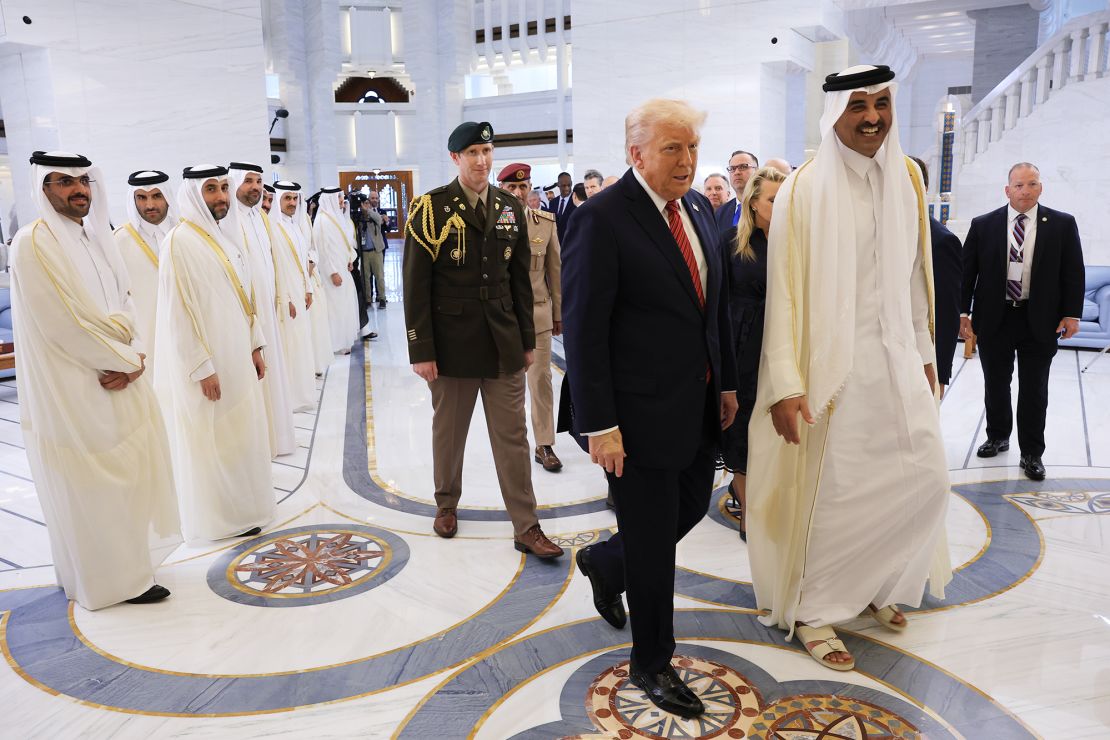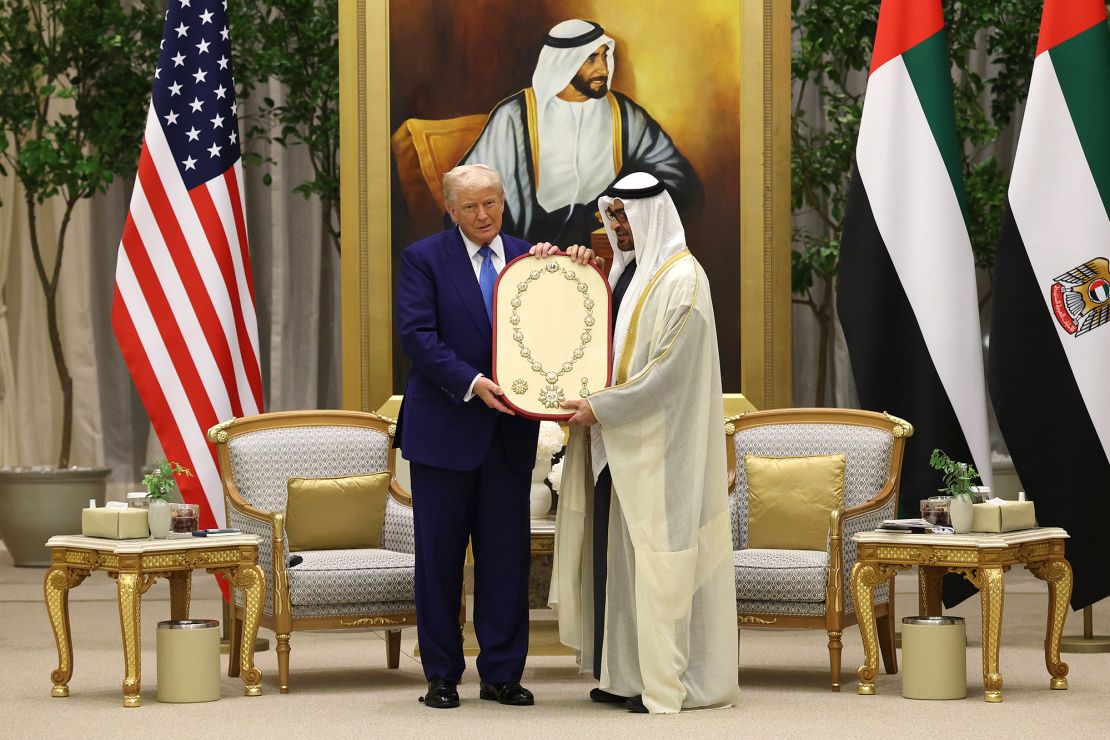First American state visit to Qatar
Qatar this week received its first-ever official state visit by a US president. The last time a sitting US leader visited the nation was in 2003, when former President George W. Bush paid a visit to Central Command headquarters, where he addressed US military personnel.
Qatar’s emir, Sheikh Tamim bin Hamad Al-Thani, said that talks with Trump on this trip will “give new impetus to the existing strategic cooperation between our two countries in various fields.”
The two nations signed a host of deals during Trump’s visit, including a $96 billion agreement for Qatar to acquire up to 210 American-made Boeing planes, according to a White House factsheet.
Trump also accepted a Boeing 747-8 jet from the Qataris, to be used initially as Air Force One. The American president accepted the mammoth jet despite the ethical and legal controversies it raised. Critics have accused Qatar of seeking to gain influence in the Trump administration through the gift.

In an interview with CNN’s Becky Anderson, Qatari Prime Minister Sheikh Mohammed bin Abdulrahman bin Jassim Al-Thani dismissed the criticism.
“Why would we buy an influence in the United States?” he said. “If you look just in the last 10 years in the US-Qatar relationship, Qatar has been always there for the US, when it’s needed, whether it’s on the war against terror, whether it’s in the evacuation of Afghanistan, whether it’s on releasing hostages from… different countries around the world.”
Doha’s biggest win was perhaps the security assurances received from Trump, in which the US vowed to “protect” its longtime security partner in the face of threats.
“We are going to protect this country,” Trump said at a business roundtable, noting how close Qatar is to Iran.
“For this country in particular, because you’re right next door, you’re a stone’s throw away, not even, right? You’re a foot away. You can walk right into Iran,” he said.
Qatar is the Gulf Arab nation with the most formalized security ties with Washington. It hosts the biggest US military installation in the Middle East, which the State Department describes as “indispensable” for US military operations in the region.
An AI megacomplex in the UAE
The UAE’s main target from Trump’s trip was deeper investments on AI and technology, and while it achieved victories in that regard, the visit fell short of what Abu Dhabi really wanted: unrestricted access to advanced American microchips.
During Trump’s visit to the UAE, the two countries announced a partnership to build a massive data center complex in Abu Dhabi to advance AI capabilities with 5-gigawatts of capacity – enough to power a major city.
Lennart Heim, an associate information scientist at the RAND Corporation think tank, said the new complex would require over 2 million chips.
“To put the new 5GW AI campus in Abu Dhabi into perspective. It would support up to 2.5 million NVIDIA B200s. That’s bigger than all other major AI infrastructure announcements we’ve seen so far,” he wrote on X.
“Investing in AI, which has been the focus of President Trump’s trip, really cements the UAE as a major player in this space,” Sanam Vakil, director of the Middle East and North Africa Programme at the Chatham House think tank in London, told CNN’s Becky Anderson, adding that on the geopolitical level, the US is asking the UAE to work with Washington on AI, and not with other competitors like China.

The UAE hopes to become a global leader in AI by 2031, but it needs American chips to achieve this goal. Under the Biden administration, the US had tightened curbs on AI exports to keep advanced technology out of the hands of foreign adversaries such as China, which the UAE has been hoping to see eased.
The chips may, however, soon become available to the UAE.
A source familiar with the matter told CNN Friday that “things are moving ahead with a preliminary agreement between the US and Abu Dhabi which could ease the import of cutting-edge AI chips.”
CNN has reached out to the White House for comment.
Trump said on Friday that both countries agreed to create a “path” for the Gulf state to buy some of the most advanced AI semiconductors from US.
“Much like the other two countries, it (Trump’s visit) was a win,” Esfandiary said. “They signed a lot of deals, they got a lot of headlines,” she added.
“And that’s what counted the most – there appears to be a level of confidence in the UAE about this relationship and the state of it right now with the US.”
